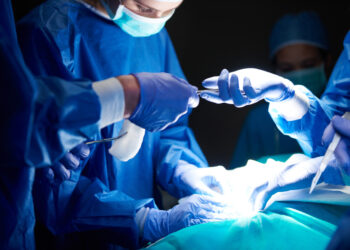These classes are tailored specifically to you if you are planning a vaginal or cesarean birth, breastfeeding or simply want more knowledge on newborn care.
Research supports this finding, suggesting that expectant parents prioritize education about labor and birth preparation and infant care (Ateah, 2013).
Breastfeeding
Breastfeeding (also referred to as nursing or chest feeding) is the natural process of providing your child with human milk for nourishment, strengthening their bond while building their nutrition needs. While breastfeeding may not always be easy for new mothers, some opt to stop breast-feeding after an extended period.
Atlantic Health System’s breastfeeding classes will equip you with all of the tools and information you need to successfully breastfeed your child. From learning the advantages of breastfeeding, proper positioning and latching techniques, how to recognize your own milk production as well as pumping and storing practices; our breastfeeding courses cover it all!
Newborns have an overwhelming physiological need for close skin-to-skin contact, which helps them bond and feel secure. Furthermore, breastfed babies feed more frequently and at longer intervals than bottle fed ones resulting in greater breast milk production. Breastfeeding is essential in providing newborns with optimal early health outcomes – possibly even decreasing risks such as infections, allergies, disease or obesity in later years.
Antenatal classes (also called birth and parenting classes) can provide invaluable assistance to you and your partner as you prepare for labor, delivery, breastfeeding and caring for a newborn. Attendance at birth and parenting classes provides an ideal opportunity to ask questions of experienced parents in similar situations and meet like-minded peers – many expectant couples report feeling more prepared and at ease about the upcoming experience after taking these courses!
Newborn Essentials
Babies don’t come with instructions, so equip yourself with knowledge. This four-and-a-half hour interactive course covers newborn characteristics and care, concerns over health and safety and when to call the pediatrician. Through hands-on activities, films and group discussion you will develop instinctive parenting practices – an excellent refresher course for grandparents!
Preparing for labor and caring for your new baby can be daunting, but it doesn’t have to be overwhelming. Many parents find that attending best prenatal classes, known as antenatal or birthing classes, helps them feel more at ease during this process. Attendance allows expectant couples to meet other expectant couples and discuss experiences and questions; additionally they often include tours of hospitals or birthing centers as well as visits from midwives or nurses if desired.
Rocking Dads offers a class tailored specifically to men preparing to attend the birth of their child or partner, called Birth Prep for Men (BPFM), that provides preparation in areas like relationship, communication, preparation for birthing procedures such as C-sections and breastfeeding from a male perspective. This series takes place over three weeks with meetings each week lasting three hours long and provides comprehensive coverage from male perspective of relationship building, communication techniques during gestation and C-section procedures from non-medical interventions as well as breastfeeding from male viewpoint.
Skin-to-Skin Care
Pregnancy allows babies to stay close to their mothers for warmth, food, protection and oxygen through skin contact; after birth it’s important they continue this closeness in order to form strong relationships and foster strong bonds between themselves and their mother. Studies show that skin-to-skin care (commonly referred to as kangaroo care) provides many advantages including improved growth and development as well as breastfeeding support and maternal satisfaction.
Ideal, skin-to-skin care should be provided to all haemodynamically stable infants as soon as possible after delivery, for at least an hour postnatal. This contact can reduce stress, promote bonding, stimulate oxytocin release, which in turn boosts breastmilk production, and also help decrease stress-induced stress responses in NICU newborns.
Studies have revealed that skin-to-skin care provides mothers with significantly higher oxytocin levels compared to when she isn’t holding their child, possibly accounting for why infants who receive STS experience better weight gain and improved blood sugar regulation than those who don’t.
Denver Health’s Neonatal Intensive Care Unit participates each year in the Kangaroo-a-Thon competition among hospitals to encourage moms and dads of newborn babies to provide skin-to-skin contact for their infants. Although due to COVID pandemic this aspect was temporarily suspended, our NICU nurses continued this tradition within Denver Health’s hospital with special focus on preemies.
Baby Basics
if you’re concerned about affording care for your newborn, taking part in a Baby Basics course could prove useful. This free program teaches new parents how to keep their infant healthy through techniques such as swaddling, holding and soothing. As well as feeding and diapering as well as safe sleep practices. In addition, when calling a doctor and baby proofing your home are all covered.
The 20th Medical Group Family Advocacy Program at Shaw Air Force Base hosts Baby Basics classes every other month for soon-to-be parents and their partners/caregivers (grandparents/nannies, for instance). These two-hour sessions offer basic infant care including safe sleeping techniques, infant CPR techniques and how to deal with crying infants – these sessions are free for military ID card holders and spouses!
Robyn, which was featured on NPR Morning Edition and Stanford Social Innovation Review as one of the online childbirth and parenting classes available, provides expectant mothers with a database that connects them to wellness specialists such as doulas, fitness trainers, pelvic floor therapists, mental health coaches and acupuncturists who can assist during gestation.
If you prefer learning in person, check out your local hospital’s classes. Most offer prenatal and parenting courses covering everything from childbirth to breastfeeding. YouTube also has videos like Holliday Tyson’s popular “All About Childbirth” series as well as interactive online classes with instructors and small groups like WeeHuman’s interactive online classes with instructors.
CPR & First Aid
No other skill equips parents like having the knowledge and ability to handle medical emergencies than CPR (cardiopulmonary resuscitation) and first aid training courses can. Every second counts when dealing with situations like choking or heart failure – don’t wait for an ambulance – be proactive instead and learn what action to take without waiting! In such an emergency, CPR (cardiopulmonary resuscitation) and first aid classes come in handy!
Prenatal care providers usually offer both CPR and first aid classes for expectant parents, grandparents, aunts and uncles, siblings, friends and other members of the extended family. These courses teach participants basic lifesaving techniques they will need in a medical emergency such as performing chest compressions and rescue breathing as well as how to use an automated external defibrillator (AED).
Parents need to know how to respond when injuries or illnesses such as nose bleeds and insect bites arise, so having a well-stocked first aid kit with bandages, gauze, sanitizer, antihistamines and liquid soap will be available can give new parents peace of mind in case any medical emergencies arise – this can especially apply when leaving care of the baby with someone else, like childcare providers who should possess CPR and first aid training.
Dads-to-Be
Dads-to-be may feel they have limited prenatal care options available to them, so this class provides a fantastic opportunity for them to understand what is expected during gestation, childbirth and beyond. Furthermore, it helps them understand why they matter as parents-to-be and why emotions associated with becoming fathers may surface and how life will change once their bundle arrives!
This book’s advice covers all of their bases – from supporting their partner through pregnancy discomforts, choosing an ideal hospital and delivery location and developing their parenting style accordingly. The author writes with empathy, making this an engaging read for first-time fathers.
Parenting a newborn can be taxing, particularly after recovery from giving birth. In order to minimize potential resentments between expecting parents, it’s vital that both parties involved be adequately prepared to assume their respective roles as new parents. Arranging childcare services or maternity leave with employers, as well as prepping the house by installing crib bedding, car seats, or creating a nursery are just some ways they can prepare for what lies ahead.
Fathers-to-be can also plan ahead for their own needs and interests by researching local daycare centers, setting up tours, setting up family health insurance coverage, and creating a college savings plan.










